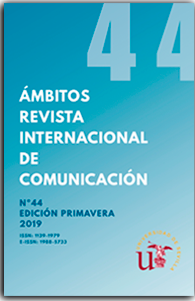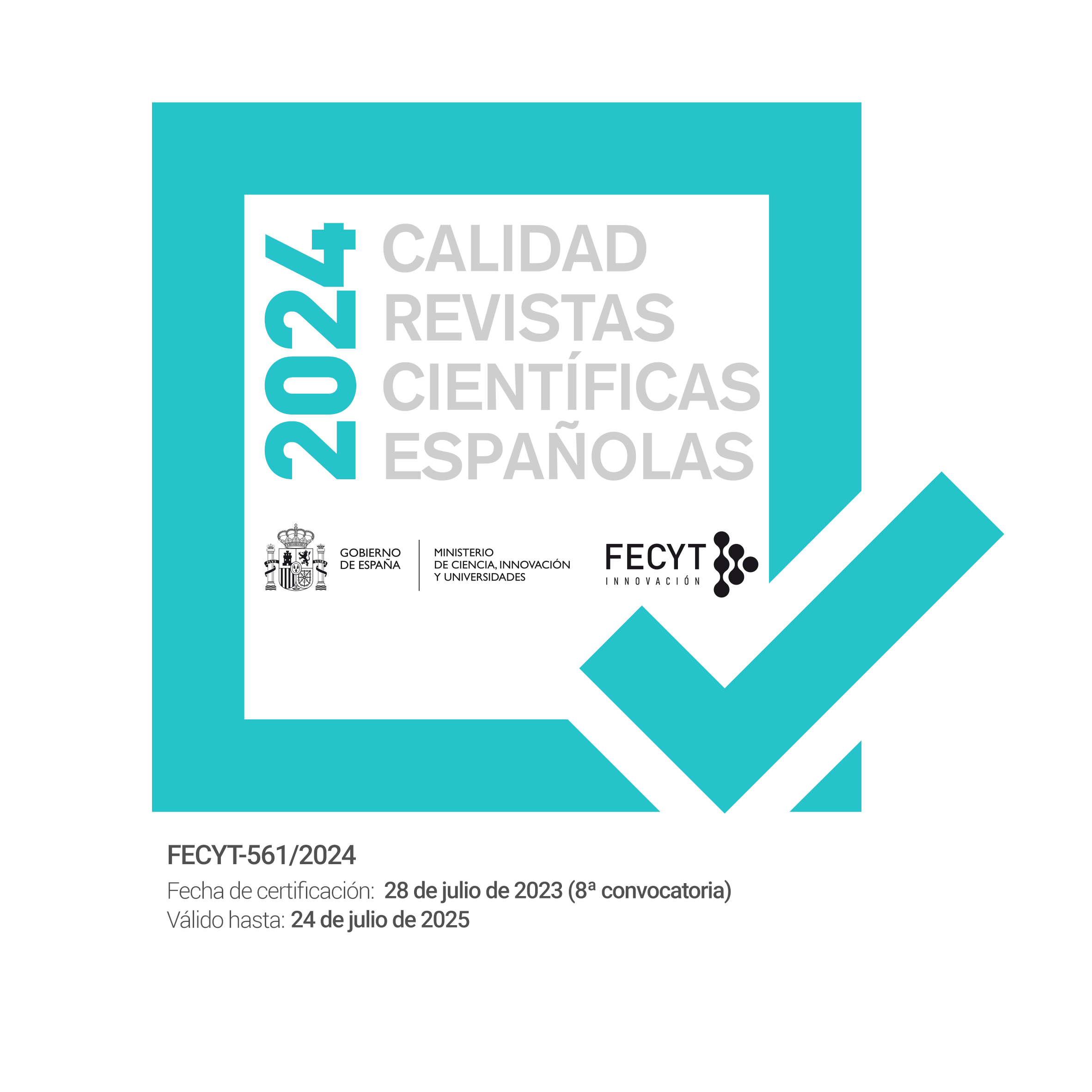Comunicar la Unión Europea en la era de las ‘fake news’
DOI:
https://doi.org/10.12795/Ambitos.2019.i44.14Palavras-chave:
Periodismo, Comunicación Política, Comunicación Institucional, Unión EuropeaResumo
En el marco histórico de las elecciones europeas de 2019 se ha publicado la obra Comunicación Europea ¿A quién doy like para hablar con Europa? (Editorial Dykinson, 2019), que aspira a convertirse en un manual práctico sobre la situación de la Unión Europea en el plano comunicativo y los efectos que ella tiene en la ciudadanía.
La comunicación comunitaria es un fenómeno poliédrico y fluctuante, que genera disfunciones, en el sentido de propiciar la desafección hacia el proyecto europeo. A pesar de esta complejidad, Tuñón, Bouza y Carral desarrollan sus planteamientos de una forma concisa y asequible para el lector no iniciado, que se enfrenta por primera vez a la conjunción de comunicación y asuntos europeos.
Downloads
Downloads
Publicado
Como Citar
Edição
Seção
Licença
Ámbitos. Revista Internacional de Comunicación é um jornal de acesso aberto, o que significa que todo o conteúdo está disponível gratuitamente para o usuário ou sua instituição. Os usuários podem ler, baixar, copiar, distribuir, distribuir, imprimir, pesquisar ou vincular ao texto completo dos artigos, ou utilizá-los para qualquer outra finalidade lícita, sem solicitar permissão prévia da editora ou do autor. Esta definição de acesso aberto está de acordo com a Iniciativa de Acesso Aberto de Budapeste (BOAI).

A menos que seja observado o contrário, todo o conteúdo da edição eletrônica é distribuído sob uma "Licença Internacional Creative Commons Attribution-NonCommercial-ShareAlike 4.0". Você pode consultar a versão informativa e o texto legal da licença aqui. Isto deve ser expressamente declarado desta forma, quando necessário.
No caso de aceitação do manuscrito, os autores cedem os direitos da obra para sua publicação à Ámbitos. Revista Internacional de Comunicación sob o contrato de licença Attribution-NonCommercial-ShareAlike 4.0 International (CC BY-NC-SA 4.0). Os autores retêm os direitos autorais e terceiros estão autorizados a copiar, distribuir e fazer uso da obra, desde que cumpram os termos e condições estabelecidos na licença
- Cite a autoria e a fonte original de publicação (revista, editora e URL da obra).
- Não utilizá-los para fins comerciais.
- Se você remixar, transformar ou criar a partir do material, você deve liberar suas contribuições sob a mesma licença que o original.
Mais informações podem ser encontradas em
https://creativecommons.org/licenses/by-nc-sa/4.0/deed.es


















